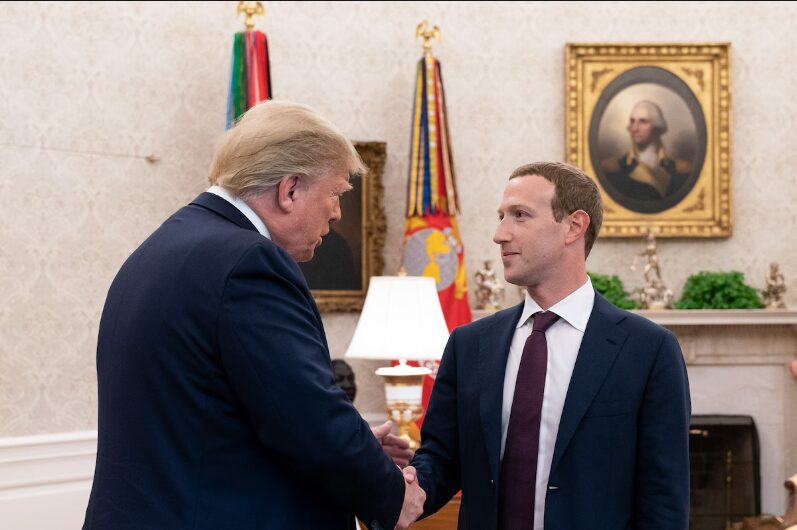In a striking revelation from his latest book, former President Donald Trump has leveled serious accusations against Mark Zuckerberg, the CEO of Meta (formerly Facebook), alleging that Zuckerberg conspired to undermine his 2020 re-election campaign. The claims, made in Trump’s new book “The Art of the Steal: The Big Tech Conspiracy” have reignited debates over the influence of social media and tech giants in American politics.
Trump’s book asserts that Zuckerberg and his company played a pivotal role in tipping the scales against his campaign. According to Trump, Zuckerberg’s platforms systematically suppressed pro-Trump content while amplifying messages critical of his administration. This, Trump argues, created an uneven playing field during the 2020 presidential election.
The accusations revolve around several key points. First, Trump contends that Facebook’s decision to limit the reach of certain posts, including those from conservative figures and supporters, was part of a deliberate strategy to stifle his base. Additionally, Trump alleges that the platform’s content moderation policies were disproportionately applied, targeting Trump’s campaign while allowing harmful content from his opponents to proliferate.
One focal point in Trump’s accusations is the massive financial investment Zuckerberg made in election-related initiatives. In 2020, Zuckerberg and his wife, Priscilla Chan, donated approximately $419 million to various election organizations through the Center for Tech and Civic Life (CTCL). These funds were used to support local election offices in managing the surge of mail-in ballots due to the COVID-19 pandemic. Trump claims that these donations were not just about supporting election logistics but were instead an attempt to influence the election outcome in favor of Joe Biden.
Zuckerberg has firmly denied these allegations. In response to similar claims, he has maintained that his company’s actions were aimed at preventing misinformation and ensuring the integrity of the election process, rather than engaging in partisan politics.
The allegations against Zuckerberg come amidst broader concerns about the role of big tech in elections. Critics argue that tech companies have too much power over public discourse, raising questions about how social media platforms manage content and influence political outcomes.
As Trump’s book continues to generate headlines, the accusations against Zuckerberg add a new dimension to the ongoing debate about the intersection of technology and politics. The discourse surrounding these claims will likely influence discussions on election integrity and the role of social media in future American elections.
